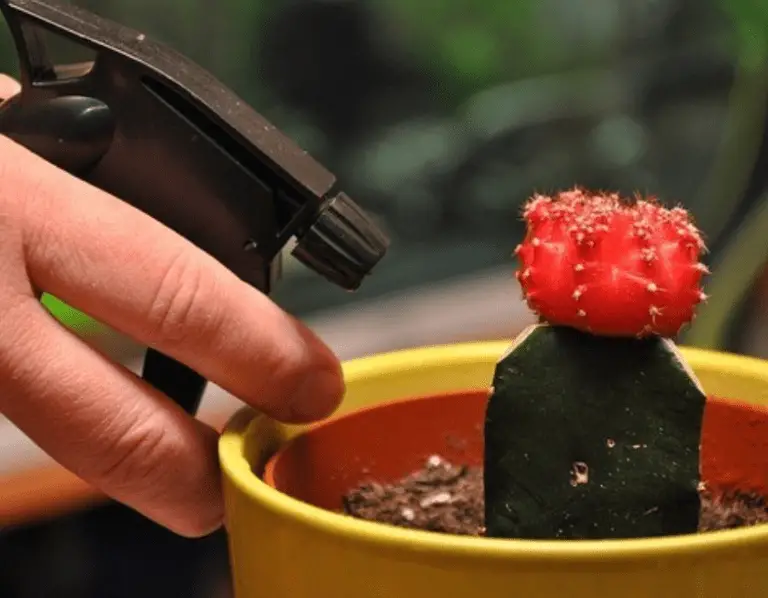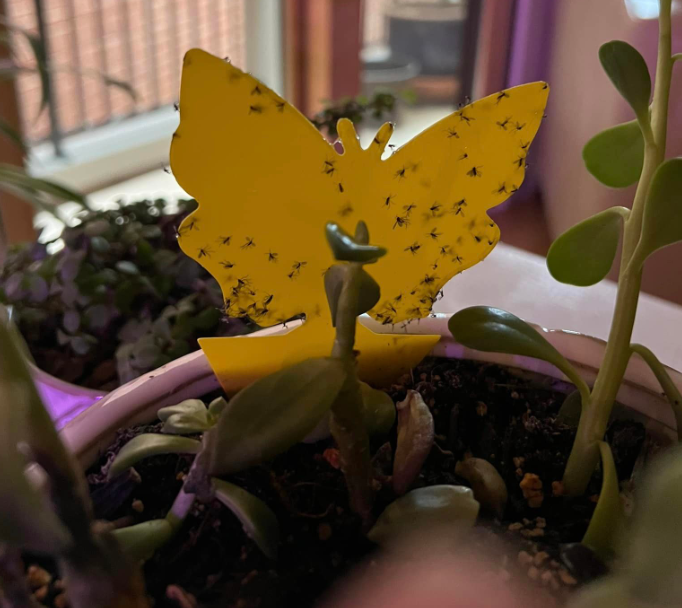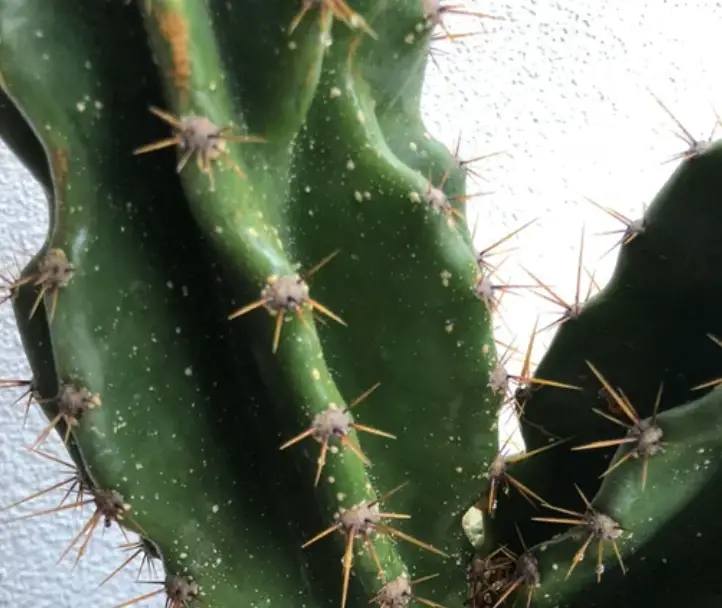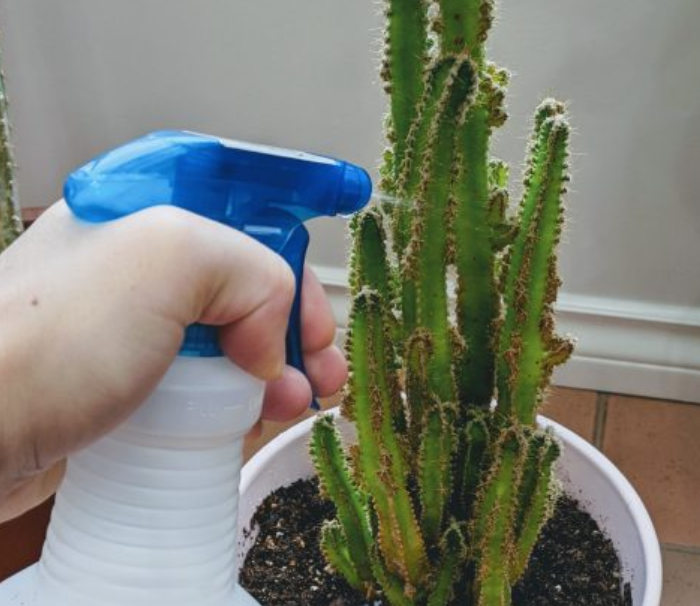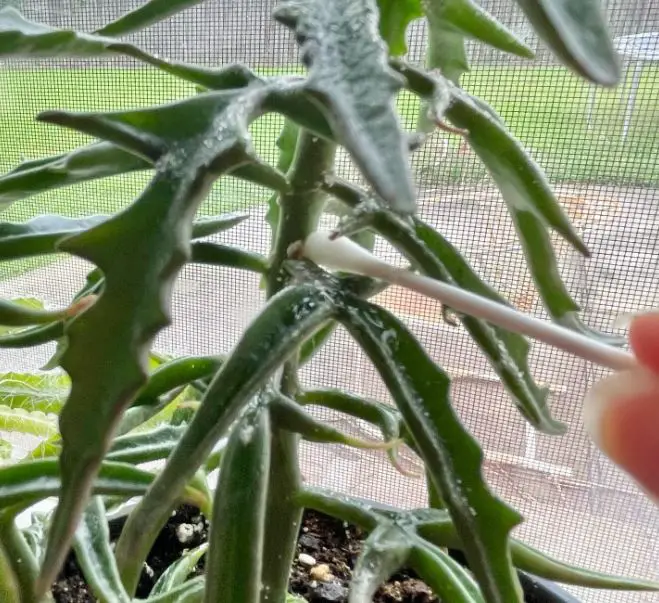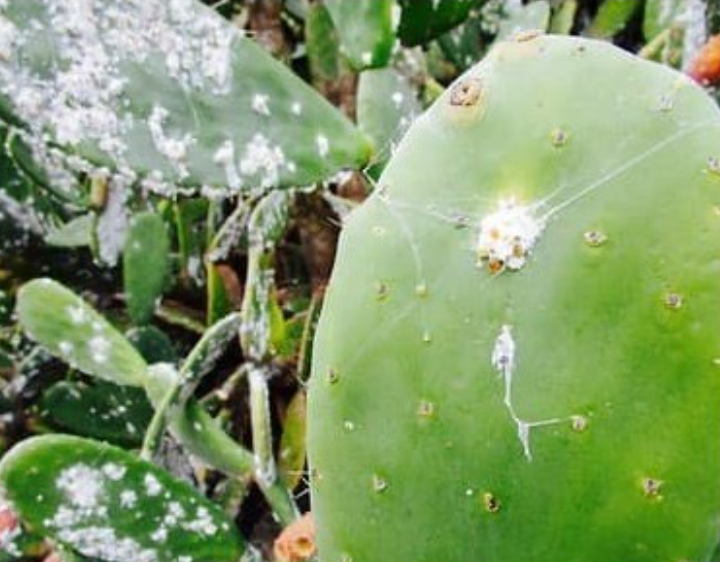Effective Homemade Aphid Spray – Recipes and How to Use
Aphids are among insect pests that feed on plant sap. Their feeding behavior can distort plant tissues leading to curling and yellowing leaves, stunted growth, and the spread of plant diseases. Aphids reproduce rapidly, so controlling them can be a challenge.
Some types of aphids such as wooly aphids secrete and cover themselves in a white or grey substance that makes them resistant to traditional insecticides. While chemical pesticides might offer a quick fix to aphids on houseplants, they potentially pose health risks to pets and humans.
In this guide, I’ll explain how to make and use the most effective homemade aphid spray using the ingredients found in your kitchen. In particular, I have a recipe for the popular soap-neem oil solution and the natural vinegar aphid spray.
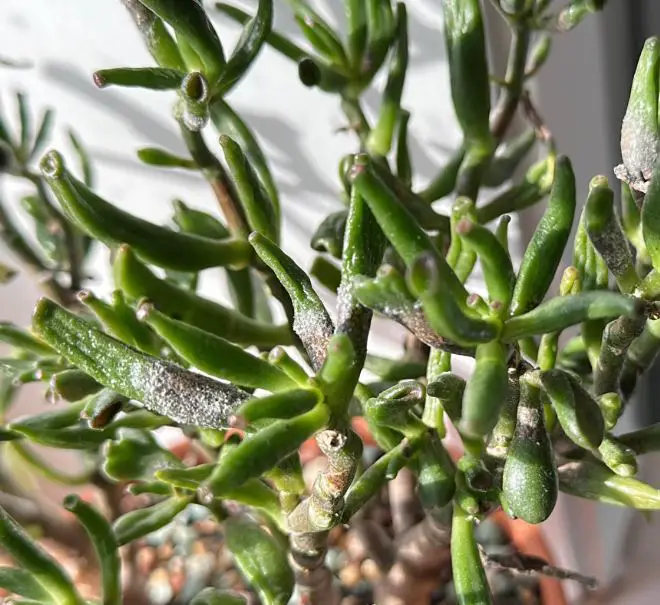
The power of homemade aphid sprays
Chemical pesticides might seem like a quick fix to the problem of aphids but they come with downsides like harming beneficial insects and posing dangers to pets and humans. Homemade aphid sprays can be a safe, cost-effective, and sustainable solution.
The real magic behind homemade aphid sprays lies in the ingredients. Here are some of the key players and their benefits:
- Mild liquid soap – This is one of the main ingredients for many homemade bug sprays. It disrupts the insects’ cell membranes, leading to dehydration and eventual demise.
- Neem oil – Derived from the neem tree, this oil not only suffocates aphids but also disrupts their life cycle by affecting their growth and reproduction.
- Essential oils – Peppermint, rosemary, and garlic oils possess strong scents that repel aphids and other pests.
- Vinegar – Distilled white vinegar, contains acetic acid that disrupts the protective coating of aphids, causing them to dehydrate and eventually die.
Homemade aphid spray recipes
Here are simple recipes for preparing your own aphid sprays:
Soap-neem spray
Soap and neem are super effective in dealing with common garden pests including aphids and mealybugs. Here is how to make and use this solution.
Ingredients
- 1 tablespoon mild liquid soap (like Castile soap)
- About 1 liter of water
- 1 teaspoon neem oil or a few drops of essential oil
Instructions
- In a spray bottle, combine the mild liquid soap and water. Make sure to use a mild soap to avoid damaging your plants.
- Add neem oil or a few drops of any essential oil such as peppermint or garlic.
- Close the spray bottle and gently shake the mixture to ensure all the ingredients are well blended.
- Before spraying the entire plant, test the mixture on a small, inconspicuous part of the plant to make sure it doesn’t cause any adverse reactions.
- If the test goes well, you can proceed to spray the mixture onto the affected plants. Be sure to spray both the tops and undersides of leaves, where aphids tend to congregate.
- Depending on the severity of the infestation, you may need to reapply the spray every few days until the aphids are under control. Keep monitoring your plants to catch new infestations early.
Vinegar aphid spray
Creating a vinegar-based aphid spray is simple and requires only a few household ingredients:
Ingredients
- 1 part white vinegar
- 3 parts water
- A small amount of mild liquid soap
Instructions
- In a spray bottle, mix 1 part white vinegar with 3 parts water.
- If you choose, add a small amount of mild liquid soap to the mixture. This soap helps break down the waxy protective layer on aphids, making the spray more potent.
- Gently shake the mixture to blend the ingredients.
- Before use, test the spray on a small section of your plant to ensure it doesn’t cause any adverse effects.
- If the test results are good, thoroughly spray the affected plants including the top and undersides of leaves.
- Regularly monitor your plants to gauge the effectiveness of the vinegar spray. If you notice a resurgence of aphids, repeat the application every few days until the infestation is under control.
Precautions
While vinegar is generally safe for plants, some delicate or acid-sensitive varieties might react negatively. Perform a patch test before using the spray extensively. Additionally, avoid using vinegar aphid spray on young or newly planted seedlings, as they might be more susceptible to damage.
Application and tips for success
For optimal results, consider the following application tips:
- Test on a small area before widespread application.
- Apply in the early morning or late afternoon to prevent leaf burn in direct sunlight.
- Spray the tops and undersides of leaves, where aphids gather.
- Reapply after rain, as rain can wash away the solution.
- Identify plant species and research potential sensitivities.
- Avoid using overly concentrated mixtures to prevent damage.
Conclusion
Aphids might be persistent, but your plants don’t have to suffer. With a few simple ingredients in your kitchen pantry and proper application, you can safeguard your plants from aphids and other pests. You’ll also have ensured the safety of beneficial insects, pests, and even humans.
Homemade aphid sprays are generally milder than chemical pesticides, so they might not provide instant results. If the infestation is severe, you might need to consider using commercial neem oil or insecticidal soap. Introducing natural predators like mealybug destroyer ladybugs can also help.
My name is Diane M Lewik, and I am the founder of this website. I am a degree holder in plant biology from the University of California – Berkeley. Over the years, I have cultivated a vast collection of succulents and I have learned a great deal about how to grow and care for these unique plants. Feel free to ask any questions in the comment section below.
